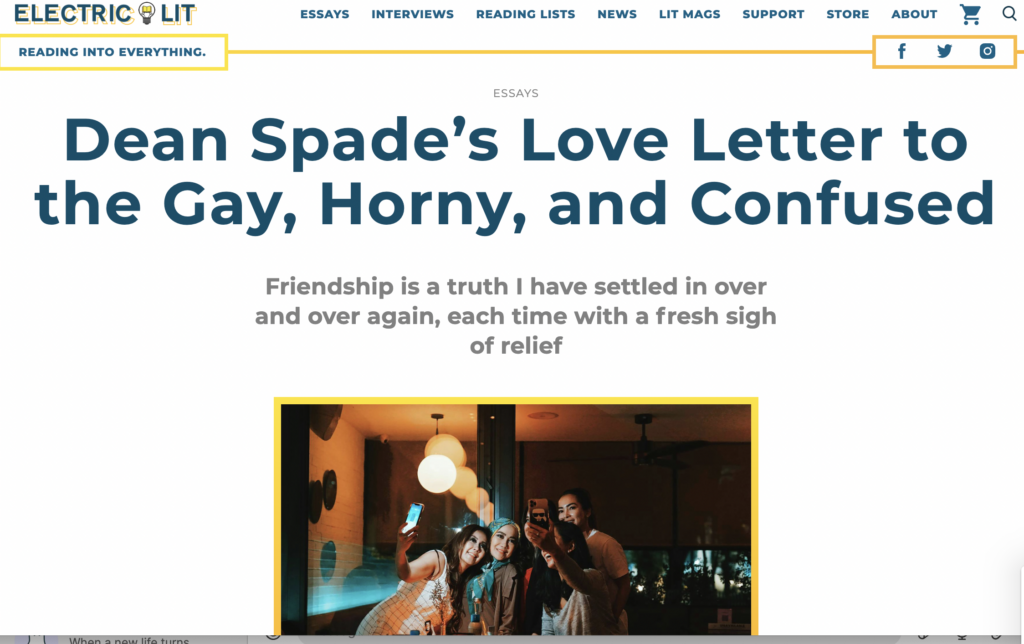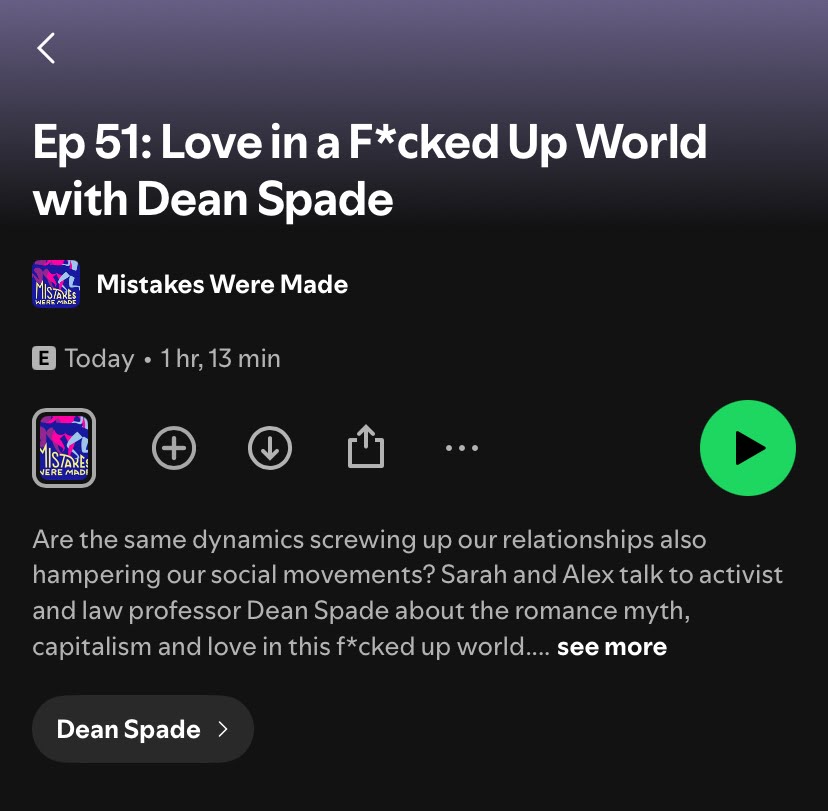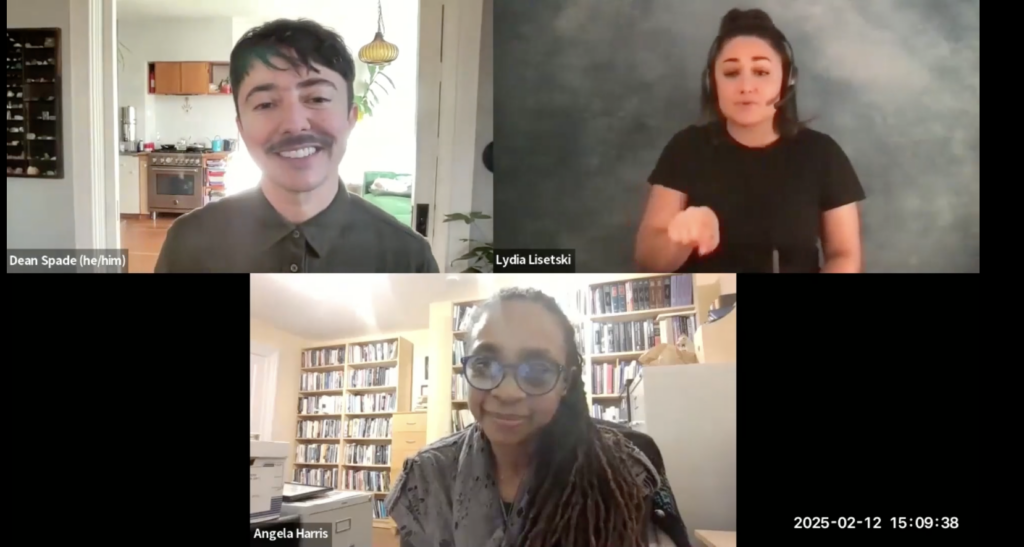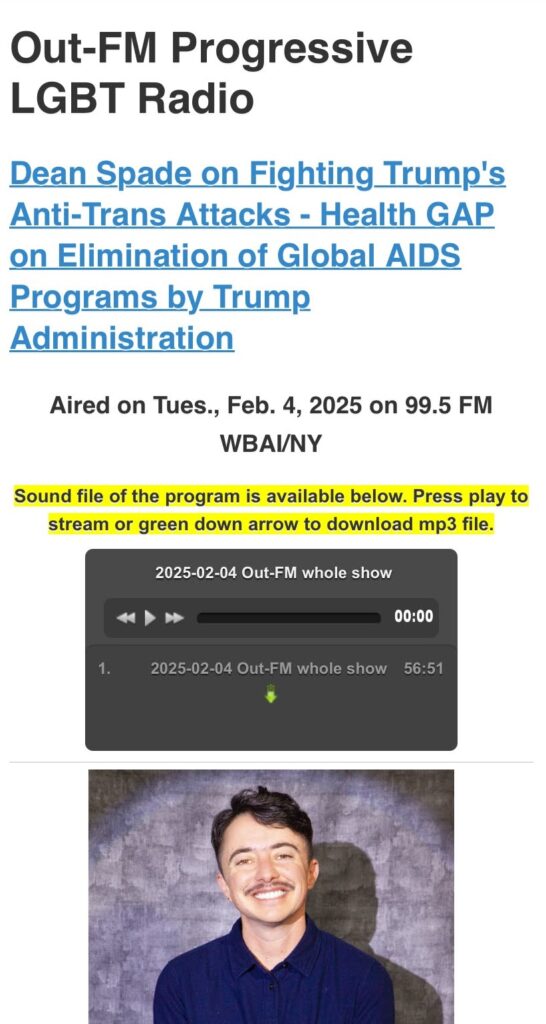
Many thanks to Malavika Kannan for reading and for this sweet engagement with the book!

Many thanks to Malavika Kannan for reading and for this sweet engagement with the book!
Many thanks to Xandan Gulley, a trans writer locked up in Texas, who just published a review of Love in a F*cked Up World on the Study & Struggle website.
You can write to Xandan through Securus: Britney Gulley / ID#01601283 / Texas Department of Criminal Justice / Murray Unit.
Was delighted to have this conversation with Kai Cheng Thom, organized by Firestorm Books. Sadly, there was a problem with the recording and the ASL interpreters are not included in the recording, but the captions were corrected and should be accurate.
Had a great time talking to the folks at Mistakes Were Made, a podcast about nonmonogamy.

Shareable recently hosted me for a Mutual Aid 101 workshop and posted the video publicly.
You can watch on vimeo here.


It’s the first Valentine’s Day in the second Trump presidency, and the speed-up of racist, ecocidal, patriarchal, wealth-concentrating terror is ploughing through, leaving devastation, despair and overwhelm in its wake. In courageous pursuit of love for our people, in profound solidarity with life on the planet, it’s time to shrug off the patriarchal romance myth and the ways it domesticates our freedom dreams, demobilizes our disobedience, and isolates us from the very people and pleasures that can make life worth living.
Valentine’s Day is a mainstay of the romance myth, insisting we celebrate romance or feel left out. It asserts that romantic relationships are the most important, that our lives are empty without them, and that we should sacrifice all to get and keep them. This myth is an important part of the social control that keeps patriarchy and racial capitalism going.
Regulating people through the government-approved family form has been essential to colonial projects of land theft and enslavement, border enforcement, military conscription, and the creation of racialized-gendered welfare systems that quell rebellion and stigmatize poverty. The romance myth is crucial for maintaining a gendered division of labor and extracting unpaid reproductive labor from women.
Romance myth propaganda in songs, shows, romance novels and social media keeps us psychically tethered to a belief that romantic love and marriage will provide emotional and material security. It demands that we jealously compete for the ideal mate (and housing and job), obsess over our worthiness, and devote time and energy to meeting societal norms — all of which undermines our solidarity and collectivity.
Generations of feminists have exposed marriage and romance as structures built to confine and control women and children and maintain the racial order, and also encouraged us to tap into the erotic as power. Feminist and queer resistance reminds us of the wild creativity and aliveness, the feral pleasures of our bodies and generous connections across friendship, lovers, chosen family and our collectives. The methods by which the erotic is domesticated are truly heartbreaking.
We are offered unsatisfying prizes in exchange for our wildness: sexless yet “secure” relationships, jealousy, unsustainable domestic labor and child care arrangements, products to decorate our cages — and self-blame for our unhappiness. Meanwhile, the person most likely to hurt or kill you is a date, family member or partner.
Amid a pressing acceleration of harm and violence (ecological crisis, wealth concentration, immigration enforcement, criminalization, attacks on queer and trans people and reproductive care, genocidal and imperialist warfare) our resistance movements are often disorganized by the romance myth. People tend to wreak havoc on lovers, groups and communities when caught up in romance myth scripts and reactions. Our groups implode because we don’t know how to stick together when we are overcome by the fear, insecurity, distrust and disappointment that are bound to arise when people gather to do anything that matters to them. And our lack of skillful attention to relational and group dynamics frequently turns off newcomers, leaving our efforts too small for the immense work that is needed.
We often pretend it doesn’t matter how we treat each other as long as we get the deliverables out: meals distributed, banners dropped, court cases filed, actions planned. Yet as feminists have always maintained, the personal is political, and the “women’s work” of attending to relationships is vital. Many brilliant organizers (or former organizers) who identify as “burnt out” aren’t tired simply from the hard work of collective action but from unresolved conflict with other organizers that no one had the skills to address.
Even people who somehow had maintained hope in liberalism, the Democrats and the trappings of neoliberal multiculturalism until the 2024 election are now encountering disillusionment. The dangerous fantasy that the United States government is going to solve the problems it creates and perpetuates is crumbling. Let it go! Now, how do we welcome newly awakening and despairing people into our movements, including those coming back after the isolation of burnout? How do we create onramps to mobilization that help people start from whatever they are initially pissed off about and expand their solidarities to care for more and more people, to understand the links between their own lives and everyone’s?
We can start with recognizing how isolated people in our society are. More of us live alone than ever, and report having no one to share good and bad news with. So when people take the risk to find us, we need to welcome them, knowing that they are seeking belonging and connection alongside purposeful action. Our groups shouldn’t feel like workplaces where we push ourselves and each other, sacrificing relationships to get the next task done. This isn’t a short-term situation. The rest of our lives will be unfolding, worsening disasters caused by ecological crisis and the unravelling of U.S. empire. The success of each action must be measured on whether, when it was over, we are more prepared to take bold action together, more connected to one another, more trusting and trustworthy.
My assessment, 25 years into resistance work, is that right now all it takes is one strongly emotionally activated person to disorganize almost any group. A string of smaller unresolved conflicts precede the moment of blowup and break down. The romance cycle is present in our groups just as in sexual relationships and friendships. We often project at the start that this person or group is going to meet deep unmet needs, that we’ve found “the one,” and we selectively ignore signals that conflict with our rosy view. Inevitably, at some point, disappointment arrives and now we tear down our beloved — our devastation proportional to the height of the pedestal we had previously placed them on.
How do we create groups that can stay together, anticipate this cycle, hold each other even when someone gets stirred up and goes into attack mode? How do we stay connected through strong feelings, sticking to our principles of repair rather than wreaking havoc? How do we hold ourselves with care and remember our shared purpose when we are gripped by strong reactions and spinning out, especially given that we often find a political rationale for our emotional reactions?
Conditions are worsening so rapidly, and we need to be steady and prepared to take bold action together, to care for each other, and to fight back. As Kelly Hayes has written with such clarity, we need to develop a much more robust underground in this time, so that we can make and distribute our own medicines, protect each other from the police and immigration enforcement, take aim at the infrastructure aimed at our people and the planet, and claw back what we need to survive. We are, and will be, working under escalating pressures of grief and loss, political repression and harsher conditions of immiseration. We need resistance groups where people listen to each other rather than bossing each other around, and invite feedback and critique rather than silencing each other or being afraid to express important concerns. We need to know how to bring new people in and help them get deep into the work and become co-stewards, not just envelope-stuffers. As Toni Cade Bambara invited us, we can and must “make revolution irresistible.”
To do all this, we must individually examine which romantic fantasies are holding us back. How do fantasies of bourgeois nuclear family domesticity keep us from collectivizing our housing, cooking, child care and elder care? Could we live more collectively to save our time and resources so we can dedicate ourselves further to movement work? How do ideas about careerism and status rein in the radical possibilities of our life’s work? What if we understood that all the most important work we’ll ever do will be unpaid, autonomous from governments, corporations and philanthropists? What kinds of work would we do then, and how would we organize our survival to maximize time away from paid work?
How do romance myth fantasies about sex and love distort our expectations, get in the way of clear communication and consent, and undermine our friendships and radical collaborations? What if we recognized the strong feelings that can come up — jealousy, envy, possessiveness, fear of rejection, fear of abandonment, fear of engulfment — and cared for ourselves in them, while working to not to let them determine our actions in relationships?
What if we worked with our friends and comrades to cultivate shared principles for generosity, courage, autonomy and connection, as well as tactics for how to practice those even though racial capitalism and patriarchy have filled our psyches with damaging reactivity?
Caring for each other and the world around us has been the daily task of our species from time immemorial. And it’s more urgent now than ever. Our opponents have almost all the money and guns. All we have is almost all the people. We have to learn to take action together, to care for each other in life-threatening circumstances, and to fight back against deadly forces that currently dominate and endanger most life on earth. To survive, we can’t let our interpersonal conflicts fueled by romantic fantasies, or harmful habits of hierarchy and centralization inherited from the dominating systems (including schools, families, jobs and most religions) hold us back.
For Valentine’s Day in this frightening time, let’s dedicate ourselves to true love and liberation. May we all be free from romance myth brainwashing, free to love wildly and boldly, outside of domesticated expectations. May we fuel our rule-breaking with satisfying, invigorating sex and promiscuous friendship. May we become better able to love and care for strangers and even people we don’t particularly like. May we find those who are lonely and bring them to the struggle to be loved and cared for with us.
I recently got to talk to my old friend Bob Lederer about the current attacks on trans people coming from new Trump administration. You can listen to the interview here.

